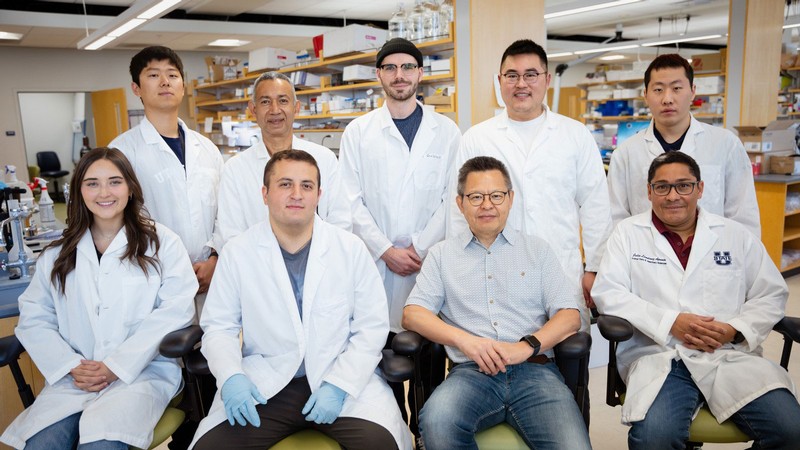Professor Zhongde Wang, alongside his team of researchers from Utah State University (USU), has made significant breakthroughs in the study of viruses that influence global health. Their expertise and innovative methods helped secure two separate grants from the National Institutes of Health (NIH), amounting to over $4 million in recent months. The partnerships established with researchers from the University of Texas Medical Branch and the University of Pittsburgh have become all-important in these endeavors.
The primary focus of these collaborations lies within two key new projects. Funding from the NIH is dedicated to the enhancement and usage of gene-edited golden Syrian hamsters. These animals serve as ideal organisms for Wang and his colleagues to establish their gene editing practices. This notable feat was made possible through the successful implementation of CRISPR-Cas9 gene editing technology to cultivate the hamsters. Due to these advancements, the team’s contributions have been instrumental in discovering safe and effective treatments and preventive vaccines.
In order to efficiently develop therapeutic drugs and vaccines for the prevention of viral infections, researchers must first discern how a particular virus penetrates specific cell types. They must understand how a virus appropriates the cell’s functions to reproduce new viruses. Essential to this process are the surface proteins of the virus, which serve as a key to unlock the cell, initiating the viral replication process.
Scientists can inspect these interactions in a laboratory setting, but the complexity of the human body often poses challenges that require innovative solutions. Traditional rodent models used in petri dishes often yield results that do not accurately represent human conditions. Thus, Wang’s laboratory created the first hamsters integrated with specific human genes. Such gene modifications promote cell responses that emulate those of humans under viral infections.
Professor Wang, who is part of USU’s Department of Animal, Dairy and Veterinary Sciences, not only propels state-of-the-art research but also mentors budding researchers. He motivates research assistants, including undergraduate students, to delve into the realm of biomedical research, stressing the fact that much remains to be explored about disease mechanisms and treatments.
The two recent NIH grants that the team is actively implementing revolve around the Chikungunya virus (CHIKV) and Hepatitis B virus (HBV). Chikungunya, a mosquito-borne RNA virus, inflicts acute fever and joint pain that can linger for an extensive period. Although first recognized in the 1950s, Chikungunya has experienced a resurgence, spreading worldwide without any existing treatments or vaccines.
Their groundbreaking research aims to overcome limitations of existing animal models that cannot accurately imitate the human disease condition, specifically chronic joint pain and the mother-to-child transmission of the virus.
Conversely, the second research grant focuses on the global health challenge of Hepatitis B. This disease currently affects over 296 million people worldwide, often leading to complications like liver cancer and cirrhosis. Treatments can rarely result in a complete cure, often because of a lack of apt animal models to fully replicate the life cycle of the virus. However, the gene-edited hamster model will allow scientists to explore both acute and chronic infections more elaborately, thus fostering a deeper understanding of how to eliminate the virus.
Professor Wang and his team’s pivotal research has the potential to accelerate the development of novel treatments, thereby providing hope to millions globally affected by these chronic diseases.



